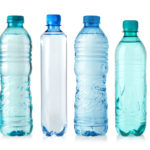
Thanks for asking this question! Fluids are essential for your body to function. Many of our organs, including our brain, skin, and kidneys, require water. Therefore, it is important for individuals of all ages to drink fluids every day.
In addition to fluids, some foods can also provide hydration. Fruits and vegetables are especially hydrating because they contain high water content and also have vitamins and minerals such as sodium. Some of the most hydrating fruits and vegetables are watermelon, strawberries, cucumbers and lettuce. Furthermore, you can try mixing any fluid into a smoothie to make it a thicker consistency and easier to swallow. If you do not like water, choosing flavored beverages or adding flavor to water (such as a lemon wedge) can make it taste better.
If your body does not do a good job of telling you when you are thirsty, you can try setting alarms on your phone or making sure to always drink with meals and snacks. Filling up a water bottle at the beginning of the day and keeping it with you throughout the day is another way to remind yourself to have fluids. It’s important that when your body does tell you it’s thirsty, that you respond by having a drink.
One way to tell if you are dehydrated is based on your pee color. If your pee is clear or light yellow, you are likely getting enough fluids throughout the day. If your pee looks darker yellow, you are likely not drinking enough. If you notice your pee is often dark yellow or have other symptoms of dehydration such as dry mouth, dizziness, or diarrhea, it’s a good idea to see a doctor. Feeling nauseous after drinking is another reason to consult with a doctor to determine why you are experiencing the nausea and ensure you are drinking enough fluids.
Source: Read Full Article






